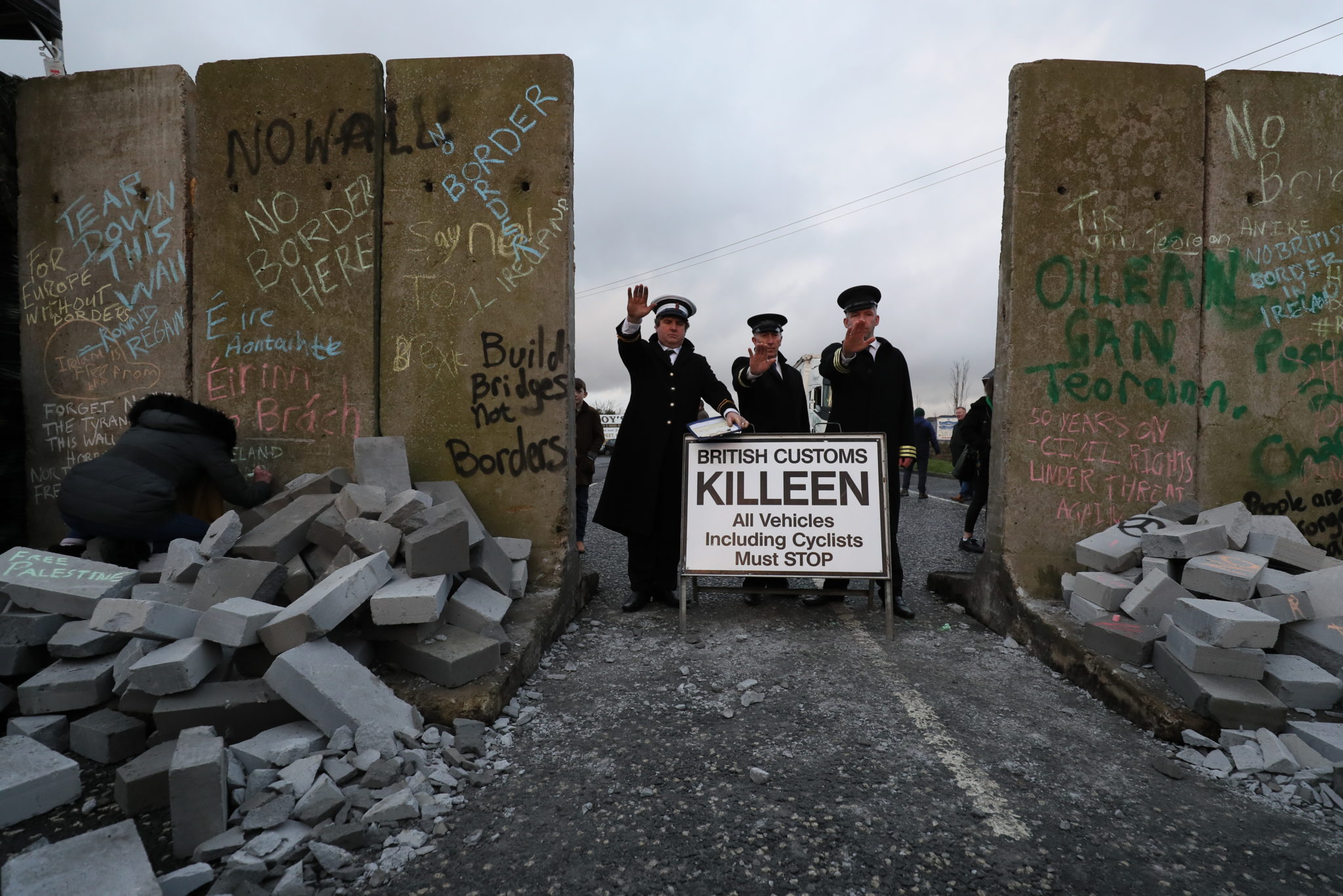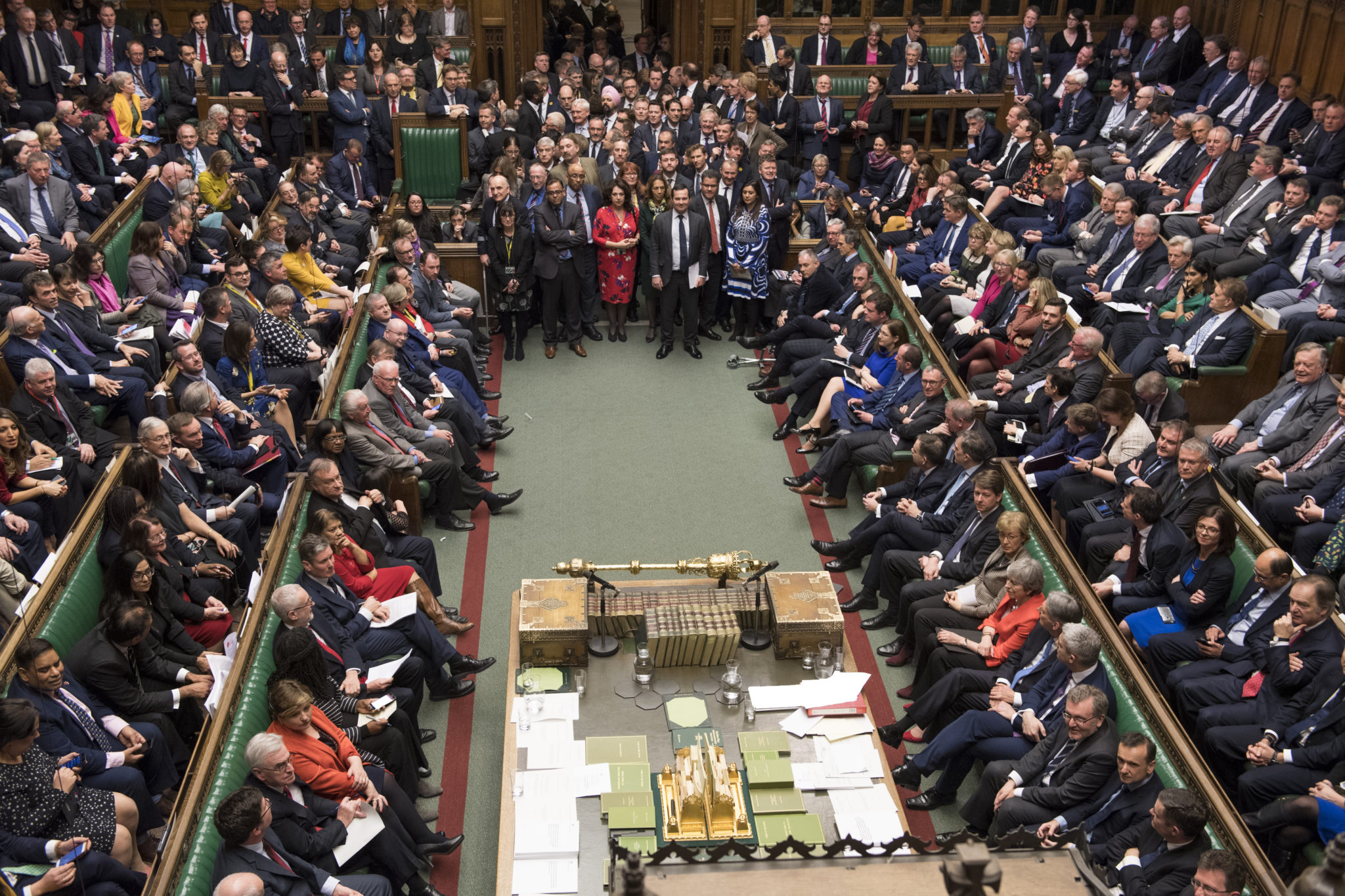Farmers are warning that the sector could face a “direct hit” of €800m if the UK Government imposes tariffs on goods entering Britain after a ‘no-deal’ Brexit.
The UK Government announced its plans for a ‘no-deal’ Brexit this morning – including its approach to tariff rates for imports and its plans for the Irish border if it leaves without a deal.
Under the proposals, Westminster has pledged not to introduce any new border checks on goods travelling between Ireland and Northern Ireland – except for a "small number of measures strictly to comply with international obligations, protect the bio-security of the island of Ireland, or to avoid the highest risks to Northern Ireland business."
There will also be no new taxes on goods travelling across the Irish border – provided they are due to remain in Northern Ireland.
Irish Sea
When it comes to goods travelling from the EU into the rest of Britain, the UK Government said some 13% of imports will be subject to tariffs.
It said this will not create a new border down the Irish Sea – as there will be no checks between Northern Ireland and Britain.
Instead, Britain will attempt to collect the taxes on goods travelling through Northern Ireland - and detect any traders attempting to abuse the system - with an ‘anti avoidance rule,' enforced on the basis of intelligence.
“Disastrous”
Following the announcement, Irish Farmers Association President Joe Healy said any tariffs on Irish beef products heading for Britain would be "disastrous."
“We export 90% of our beef – 50% of that goes into the UK,” he said.
“At the moment beef farmers are struggling to break even. They can’t afford to take a hit of at least €800m – which would be the minimum cost on tariffs of beef going into the UK.”
 A mock checkpoint manned by actors dressed as customs officers during an anti-Brexit rally, 26-09-2019. Image: Brian Lawless/PA Wire/PA Images
A mock checkpoint manned by actors dressed as customs officers during an anti-Brexit rally, 26-09-2019. Image: Brian Lawless/PA Wire/PA ImagesState aid
Speaking in the Dáil this afternoon, the Tánaiste Simon Coveney said any tariffs imposed by Britain will be damaging to Irish businesses, farmers and consumers.
He said the Government is in talks with the EU about relaxing state aid rules in an effort to protect Irish jobs.
“Tariffs will have a negative impact on trade and will be damaging to businesses farmers and consumers – whether in Ireland or in the UK,” he said.
“We will study the impact of these proposals carefully together with our EU partners and we have already contact this morning.
“However, it should be stressed that no option, including zero tariffs for some product categories or managed tariff rate quotas, would be as good as what is already on the table in the withdrawal agreement.”
Brexit Withdrawal Agreement
In the House of Commons this afternoon, UK Prime Minister Theresa May said the new taxes would never have been necessary if the MPs had backed the Brexit Withdrawal Agreement.
Opposition leader Jeremy Corbyn meanwhile said the deal had already been twice rejected adding that it "is now dead."
 Brexit Westminster vote, 12-03-2019. Image: UK Parliament/Mark Duffy
Brexit Westminster vote, 12-03-2019. Image: UK Parliament/Mark DuffyThe Brexit Withdrawal Agreement was rejected by 149 votes in the House of Commons last night.
UK MPs will today vote on whether to take the threat of a ‘no deal’ Brexit off the table – by voting for a motion which states that that the House of Commons “declines to approve” leaving the EU without a withdrawal agreement and framework for a future relationship on March 29th.
It also notes that leaving without a deal remains the default in the UK and EU law unless an agreement is ratified.
If the vote is passed, UK politicians will tomorrow be asked to vote on extending Article 50.
If carried the EU would be asked to agree to the extension – meaning the UK would not leave the EU on the proposed date of March 29th.














